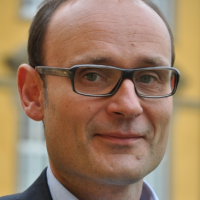Digitalisation and Social Class (DigiCLASS). (Un)-Equal Digitalisation Experiences, Future Expectations and Work-Life Utopias
Universität Osnabrück
Background
The starting point for the project is the observation that the digitalisation of work unfolds not in a social void, but in working worlds characterized by vertically and horizontally stratified class locations. Evidence suggests that different occupations are often affected very differently. While some workers are confronted with growing automation and increased control, others might experience upskilling and a reduction of physical strains. Yet there has not been a systematic study of the effects of digitalisation on different social classes.
DigiCLASS aims to address two gaps within digitalisation research: (a) a lack of examinations of the subjective perspectives of workers on digitalisation and (b) a lack of systematic intra-class and inter-class comparisons that allow for generalizable inferences. By mapping the social classes’ subjective work-life trajectories in the age of digitalisation, DigiCLASS will contribute both to digitalisation research and the debate on class analysis.
Research question
The project focuses on the interaction between digitalisation and labour market stratification. Using a class-analytical framework, it explores employees’ perspectives on the effects of digital transformation on their own work lives. DigiCLASS will examine (a) the intra- and inter-class commonalities and differences in workers’ digitalisation experiences, (b) their expectations of the future of digital work and (c) their work-life utopias.
What are the commonalities and differences in the experiences of work-life digitalisation among members of the same social class? What expectations do members of different social classes formulate about the digital future of their own work? What kind of work-life utopias can be found within social classes and across working worlds? The objective of the project is to capture the unequal effects of digitalisation on workers’ perceptions of the trajectories of their own work life.
Approach
The research design has three main components. (1) The project focuses on five specific working worlds as empirical fields. In order to cover a broad range of occupations representing different class locations, it will scrutinise manufacturing, logistics, agriculture, health care and finance. (2) In order to make class locations comparable across working worlds, the project relies on Oesch’s class scheme, which is based on the interplay between vertical stratification (market position) and horizontal stratification (work logics).
(3) Methodologically, the project comprises two closely linked modules of qualitative research: (a) 25 multi-class case studies of organisations based on semi-narrative interviews (five case studies in each working world) and (b) 16 class-homogenous group discussions on the future of work (two group discussions in each social class). This research design allows for inter-class as well as intra-class comparisons of employees’ views of digital transformation.
Prof. Dr. Hajo Holst
Universität Osnabrück
Insitut für Sozialwissenschaften
Dr. Isabell D. Mader
Universität Osnabrück
Insitut für Sozialwissenschaften
Adrian Scholz Alvarado
Universität Osnabrück
Insitut für Sozialwissenschaften


